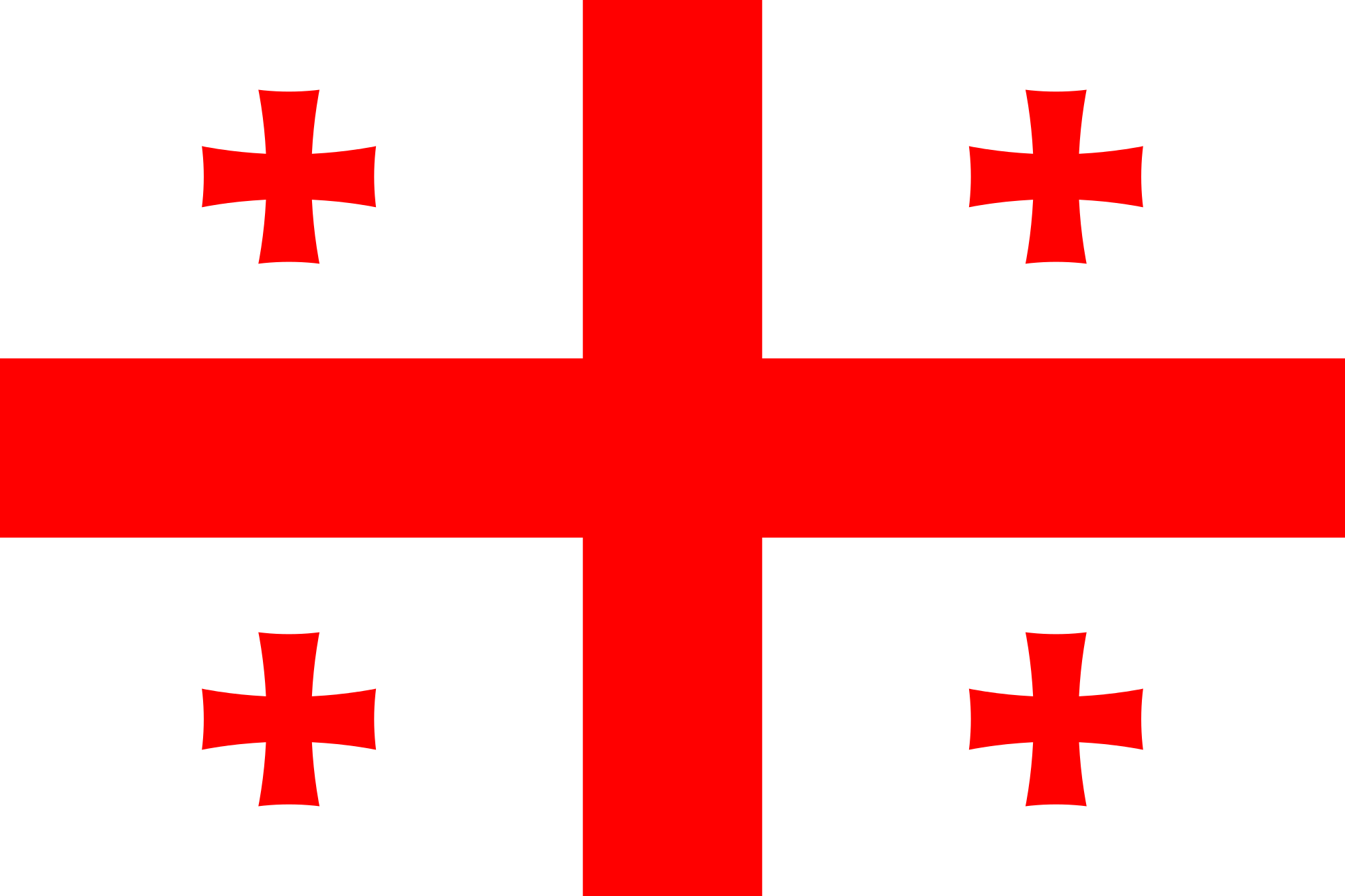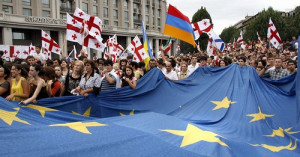In March, the Republic of Georgia took a considerable step forward on the road to full membership in the European Union. The country signed an Association Agreement, establishing a Deep and Comprehensive Free Trade Area (DCFTA) — a goal Georgia has pursued for quite some time as a strategic foreign policy maneuver designed to bolster the country’s ties to Europe. The DCFTA will accelerate trade liberalization between the European Union and the South Caucasian republic, an opportunity Georgian Prime Minister Iraklii Garibashvili described as a chance for Georgia to “return to its natural environment” as a European state. Joining the EU would not only increase access to European markets and capital, but would indicate success in the Republic’s ability to establish itself as a legitimate and undisputed member of the West — a status perceived as vital in a country that has lurched between the influence of Russia and Europe throughout its recent history.
Tensions within the EU, however, might create some hurdles for Georgia. As anyone following the Greek debt negotiations can tell, the EU has its share of internal disputes over membership and vision for the organization. And ongoing fiscal tensions within the EU, particularly the Greek crisis, pose several gnawing questions surrounding Georgia’s prospect for EU membership.
First of all, the secession of an EU state — a realistic possibility — casts into doubt the strength of European membership, setting a dangerous precedent for future crises and, possibly, exits. The EU already suffers from what is called “enlargement fatigue,” or opposition to increased membership in response to domestic economic considerations and the political dangers associated with new members. Financial panics tend to inflame enlargement fatigue — the 2008 European currency and sovereign debt crises jeopardized or postponed the membership bids of several nearby Eastern European and former Soviet countries, as well as a few in the Balkans. All the trouble over Greece is only likely to lend strength to cultural-political divisions among EU members and those increasingly different and distant states that aspire to that status. Europe’s response to financial woes in Greece very well could entail increased skepticism over the integrative process for small, risky economies clambering for EU membership. Georgia lies towards the top of this list.
The uncertainty in Europe is amplified by a risky global investment climate — between the explosion of ISIS in the Middle East, Russian incursion into Ukraine, a strong dollar and expected US interest rate hikes, slow growth in China, and sovereign debt disputes in Venezuela and Argentina, investors are presented with a global macroeconomic situation that discourages risk and places a premium on safety. Such a backdrop for the crisis in Greece only serves to amplify investor fears regarding the dominance of political concerns over the health of international finance.
The blemishes of Eurozone and Greek failure on this messy global canvas also make it difficult to attract foreign capital to an unstable frontier market like Georgia’s. Luring such investment into the country has been one of Georgia’s chief economic priorities. This emphasis is best exemplified by former Prime Minister Bidzina Ivanishvili’s sponsorship of the Georgian Co-investment Fund, a private investment vehicle whose target size is $6 billion USD in inward capital, or 38 percent of Georgia’s GDP. Investment attraction has been identified by surveys as a “top problem facing businesses,” and the Georgian government acknowledged this fact in a 2014 Letter of Intent to the International Monetary Fund. In order to attract foreign money, especially from European sources, it would be in Georgia’s best interest to see Greece stymie investor panic however possible.
Short-term worries aside, Georgia has shown a deep desire to modernize and liberalize its economy. Between 2006 and 2014, it increased its Corruption Perceptions ranking from 99th in the world to 50th, in which period its GDP per capita grew from $1,469 to $2,156. It has developed a variety of trade networks to avoid reliance on any one market and increased its integration with Europe gradually since the 2003 Rose Revolution, in which widespread protests brought down an illiberal government and drove the process of economic Westernization onwards.
The EU included Georgia within the European Neighborhood Policy in 2004, when it established ties with countries such as Israel, Belarus, Palestine, and Ukraine. In 2009, the EU developed an Eastern Partnership (EaP) with former Soviet countries to provide a strategic framework for discussing policy objectives. Kakha Gogolashvili, former Director of the Department of EU Relations at the Georgian Ministry of Foreign Affairs argued in “The Conflicts in the South Caucasus and Their Impact on the Eastern Partners,” that the EaP “coincides with the EU’s increased integrative ambitions towards Eastern Europe.” That commentary indicated clearly that, well before the Association Agreement, Georgia had been on track toward EU integration.
It’s not impossible that the Republic of Georgia will one day join the EU; Georgia’s policy implementation and marketization efforts seem to push it further along its current Westward trajectory, and EU membership would be among the final destinations on that path. However, that specific outcome is far from inevitable, and could be subject to the way in which the EU’s internal tensions and suspicion of perceived riskier economies play out. Frustrated attempts to resolve internal disputes between member states, mixed with fears of integrating with those economies, could slow down or inhibit Georgia’s Europeanization process. Without a doubt, Georgia will continue spending much of its time with the EU on its mind.

